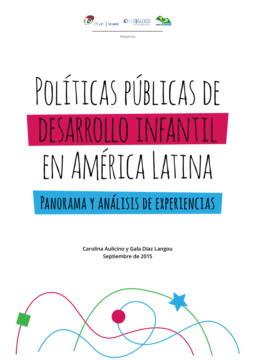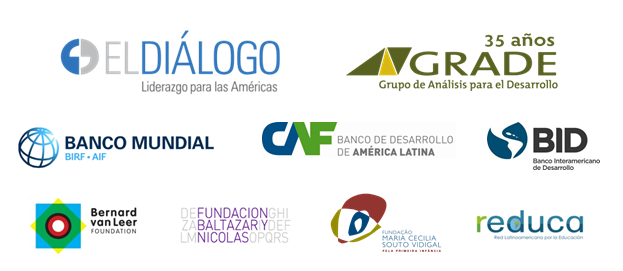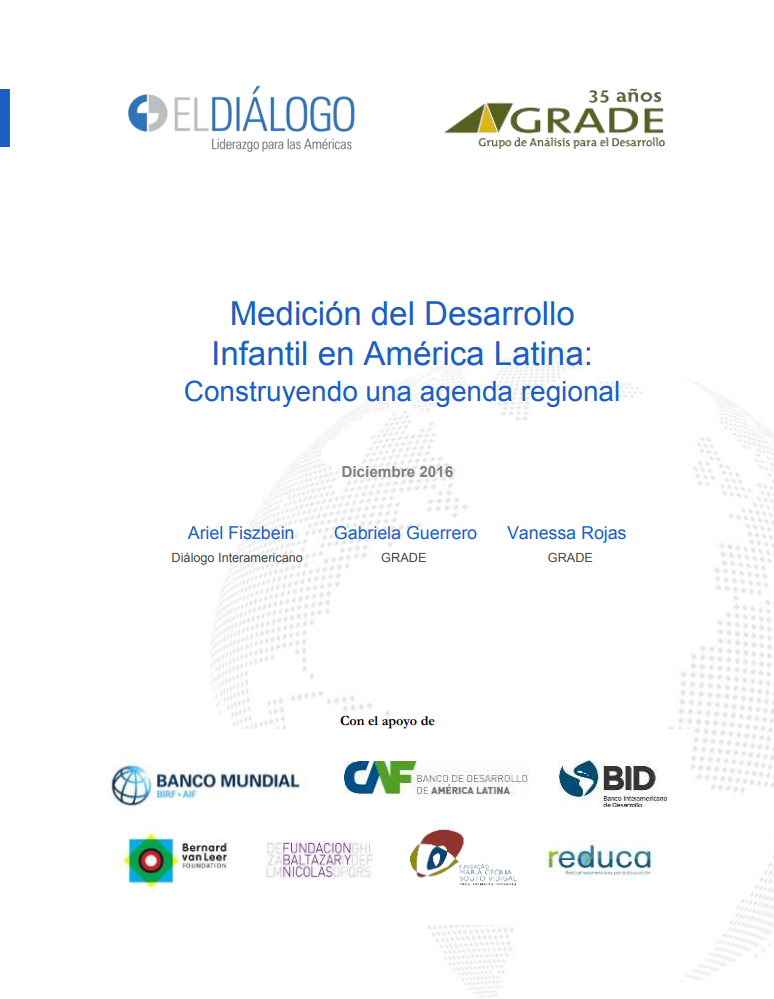
An Agenda for Early Childhood Development
Early childhood development is one of the investments with the highest returns and allows us to achieve, simultaneously, equity and efficiency objectives.
This post is also available in: Español
Early childhood development (ECD) continues to be a major challenge for Latin American countries. While progress has been made in reducing the rates of child mortality and malnutrition in most of the region’s countries, progress in other aspects of child development (cognitive, language, socioemotional, and motor development) has been low. The gaps that are observed between socioeconomic groups are large. And as a result of these gaps, too many children do not develop to their fullest potential and start primary school with deficits that constitute a major source of school underperformance.
In this context, in September 2015 the Inter-American Dialogue co-organized a workshop in Sao Paulo, Brazil that convened experts from academia, civil society, and the public sector from ten countries in the region to jointly develop a Regional Agenda on Early Childhood Development. Among the actions that this agenda suggested was to promote or strengthen the systematic measurement of ECD at the national level, in order to not only inform the design of policies, but also evaluate ECD programs in the region.
Adding to the work that began in Brazil, and responding to the actions proposed in the Agenda, in September 2016 the Dialogue co-organized a seminar in Lima, Peru on Measuring Early Childhood Development in Latin America. This seminar sought to advance a common framework for the generation and use of the results of ECD evaluations, review some of the available measurement instruments, and weigh their advantages and disadvantages both for methodology and for implementation at scale. Specifically, the seminar focused on the national sample measurements conducted regularly for the macro analysis and monitoring of ECD. Despite the importance of these national sample measurements, the majority of countries in the region do not currently conduct them, though some countries have made progress in implementing, and to some degree institutionalizing, ECD surveys.
This document summarizes the major topics of the discussion around the implementation of this type of regular measurements. It also proposes a series of next steps that should be taken to further promote the measurement of early childhood development.

Early childhood development is one of the investments with the highest returns and allows us to achieve, simultaneously, equity and efficiency objectives.
This post is also available in: SpanishBuscando ofrecer acceso a la educación a la niñez trabajadora y, por esta vía, reducir también el trabajo infantil, se han desarrollado diversas experiencias en Centroamérica. PREAL destaca aquí algunas de las que han sido documentadas por parte del proyecto Primero Aprendo que se…
This post is also available in: SpanishLos esfuerzos por erradicar el trabajo infantil a nivel mundial están mostrando positivos resultados, según señala el informe global “La eliminación del trabajo infantil: un objetivo a nuestro alcance”, difundido este año por la Oficina Internacional del Trabajo (OIT). En Centroamérica también se han…
